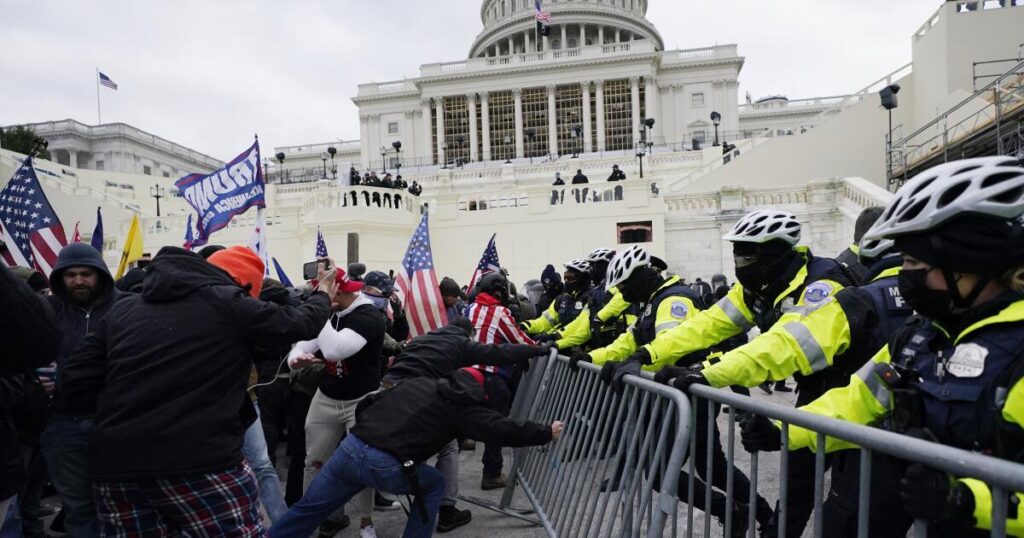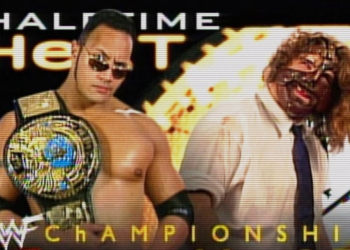Ours is a system of “checks and balances.”
The president can do this or that, but the courts and Congress can put a stop to it (depending on the circumstances and relevant rules). When the courts rule that the executive branch can’t do something, Congress can write a new law saying the president can do it. When Congress passes a law the president doesn’t like, the president can veto it. Congress, if it has enough votes, can override the veto. And so on. The whole idea is to deny any one branch or person too much concentrated power.
I’m sorry if I sound a bit condescending given that everyone is supposed to have learned this stuff in grade school. But it seems a lot of people have forgotten how our system is supposed to work, so I thought a quick recap might be helpful.
Anyway, even under our system, each branch has powers that really can’t be checked. Congress, for instance, has sole authority to levy taxes and spend taxpayer money, declare war, etc. Once a court acquits a defendant, the defendant can’t be prosecuted for that crime again.
The president has some unique powers too. Including the sole, final authority to grant pardons, which cannot be reviewed or repealed by Congress or the courts.
It’s time we changed that — and the only way to do so is by amending the Constitution.
There are two reasons for getting rid of the president’s power to pardon. The first is the grotesque abuses of that power by Presidents Trump and Biden. In his first term, Trump issued a series of egregious pardons for, among others, lackeys, war criminals and political allies.
Biden then issued blanket and preemptive pardons for his family and various political allies. Partisan defenders like to say this was necessary to protect the Bidens from persecution by the incoming Trump administration. These defenses tend to overlook the Biden family’s exceedingly shady business dealings. They also ignore a raft of other pardons and commutations Biden allegedly just outsourced to ideologues on his staff.
Back in office in 2025, Trump has outdone Biden (and himself). He launched his second term by granting mass pardons to the goons who beat police with flagpoles and stormed the Capitol on his behalf on Jan. 6, 2021. Since then, he’s pardoned a rogues’ gallery of donors, partisan allies and people with business ties to him or his family, including crypto billionaire Changpeng Zhao, the chief executive of Binance, a trading platform that allowed terrorists and criminal organizations to finance their operations under the radar.
Zhao pleaded guilty to money laundering, but he also worked assiduously to boost the Trump family’s crypto business. It certainly appears that he got a pardon in exchange for services rendered.
The second reason for getting rid of the president’s pardon power involves that earlier stuff about checks and balances. The Founding Fathers believed the only remedy for the corrupt abuse or misuse of pardons was impeachment. James Madison, the principal author of the Constitution, was explicit on this point.
At the Virginia ratifying convention, George Mason objected that the pardon power was too great, and that presidents could use pardons to suborn criminal activity on their behalf. Madison responded that, “If the president be connected in any suspicious manner with any [such] persons, and there be grounds to believe he will shelter himself, the house of representatives can impeach him.”
The problem: Congress’ impeachment power has proven to be a dead letter in the modern era of hyper-partisanship. Just as presidents cannot be trusted to use the pardon power responsibly, Congress cannot be trusted with the responsibility to hold presidents accountable. Without checks, there is no balance.
There still should be room for pardons and clemency in our system. But leaving it solely in the power of presidents has led to evermore abuse. Indeed, I think it’s almost a certainty that Trump will use the Biden precedent to preemptively pardon much of his administration, his sons and himself before he leaves office. Given the ongoing weaponization of the justice system — and his abuse of it — he’d almost be a fool not to.
The Constitution was written with men like George Washington in mind. When Washington opted to step down after two terms, it established a two-term tradition that endured until Franklin Roosevelt violated it. Afterward, we amended the Constitution to codify what had been a tradition.
For most of our history, presidents took the solemnity of pardons — and the threat of impeachments — seriously. They no longer do. It’s time to change the Constitution accordingly.
The post Presidents can no longer be trusted with pardons appeared first on Los Angeles Times.




